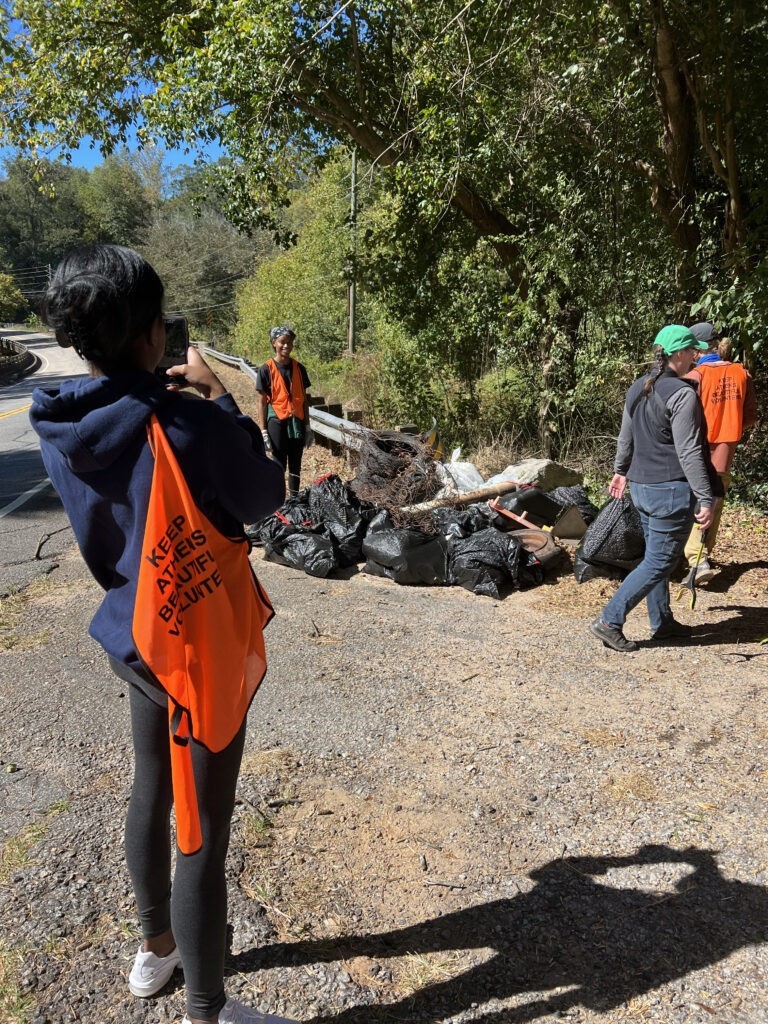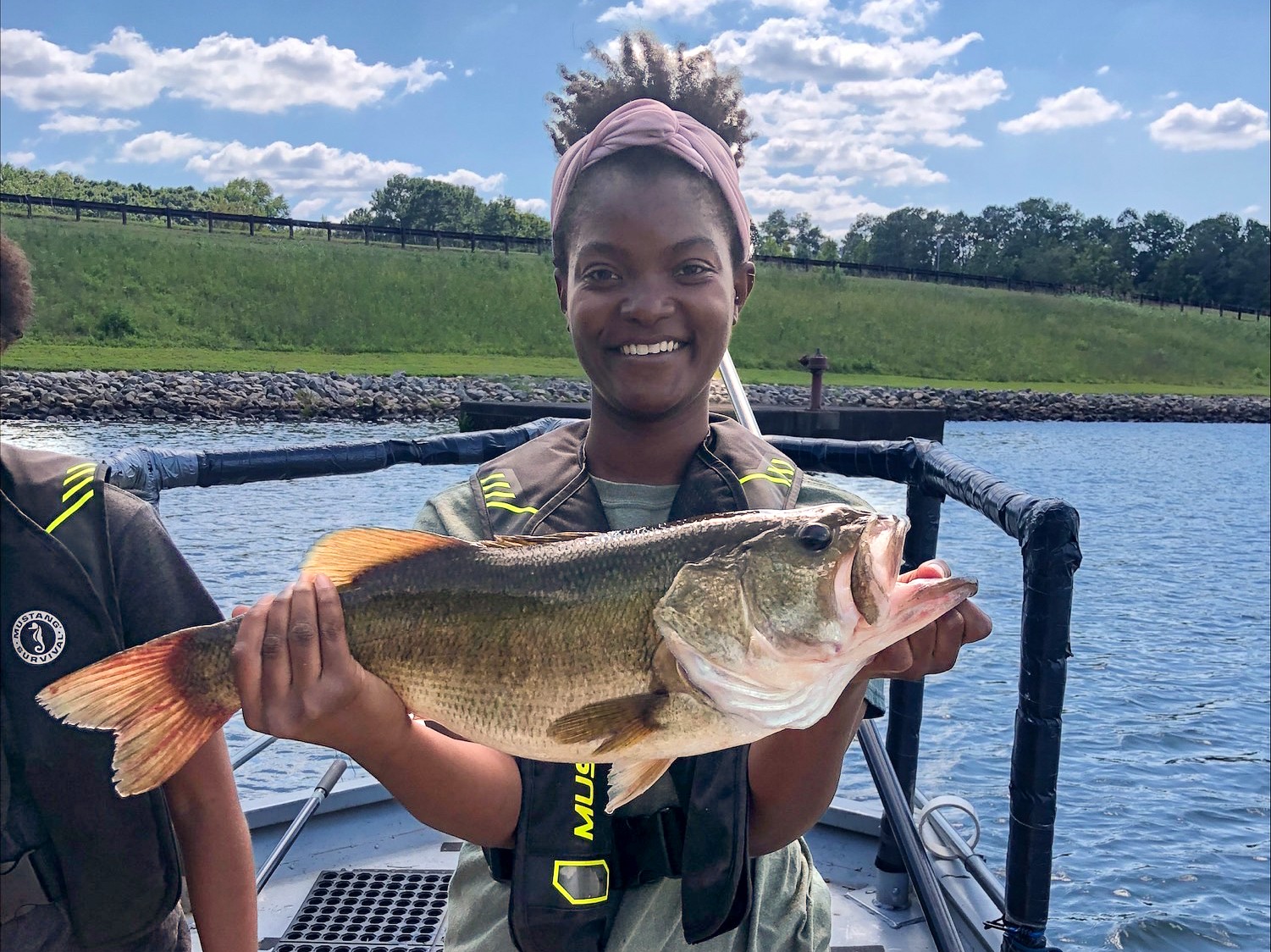For Jasmine Longmire, ecological justice feels personal.
During her junior year at Georgia Gwinnett College, she experienced a kidney failure that changed how she views her health—and her purpose. She had to take an entire year off, but the scare set into motion her current trajectory.
“That thought process of, ‘I’m gonna die,’ shook me to the core,” she said. Several medical professionals overlooked her failing kidney, which resulted in a full removal of her right kidney at 20 years old. “After it was over, I thought, ‘I’m down one kidney. But I’m still here. I can still do the things I want and feel like I was put here to do, and for me, that was freshwater conservation.”
Her personal brush with serious health issues spurred her to think critically about people living with significant medical conditions related to environmental pollutants.
Longmire hopes to work in freshwater conservation science, addressing current and past ecological injustices. Someday, she might like to teach and research on both topics.
Now, the Odum School of Ecology graduate student, 2022 John Spencer Fellow and affiliate at the River Basin Center is pursuing her master’s in ecology in the Wenger-Freeman lab.
Foundations
Longmire estimates she lived in about seven different states growing up. But amidst all that change, she remembers a constant: nature documentaries. She’d watch them with her mother, and it helped her recognize her interest in science.
College courses confirmed that passion.
She was in class with Elizabeth Sudduth when she settled on one focus of her future career. Sudduth was honest about some of conservation science’s discriminatory practices as she lectured on the history of the discipline.
“We have generations upon generations of people who are [disadvantaged] by environmental hazards because of who they are or where they were born, or just because of their simple race or gender,” Longmire said. Through research-based ecological solutions, she wants to fix that.
She’s hopeful for the future, and the lecture inspired her to put environmental justice at the center of her later work.
“We’re at a place in conservation science where we understand it’s actually good to have people from different backgrounds, minorities and other voices on a project,” said Longmire. “They have different perspectives that someone outside of that community wouldn’t have thought of.”
It’s a step in the right direction and a problem at the forefront of a lot of environmental researchers’ minds.
She also got hands-on field experience at Georgia Gwinnett, working under Peter Sakaris.
“His love for freshwater is just amazing,” Longmire explained. It was his passion—and instruction—that helped her settle on a freshwater track.
With him, she conducted a follow-up study on the Northern snakehead’s population health, after a project conducted by the Georgia Department of Natural Resources on the invasive species. The Northern snakehead was first found in Georgia in 2019 and has been a concern ever since.
She begrudgingly admires the species’ tenacity. “This fish. It’s just so determined. It can physically breathe air for certain periods of time, as long as it’s moist enough.”
Beyond UGA
Still in her first year of graduate school, Longmire hasn’t definitively settled on the scope of her graduate research. But she has a few headings.
Her work will be conducted on the Broad River, one of Georgia’s last free-flowing rivers and home to at least one endemic species, the shoal lily. She’ll expand some of the monitoring done by the Broad River Watershed Association.
“Right now, I’m mapping out the main river and then its tributaries, and then I am pinpointing each agricultural source that is near that river or can be put into the river based on where it branches off,” explained Longmire.
She also hopes to investigate industrial sources, wastewater and the complicated topic of reservoir sedimentation, where she hopes to focus the bulk of her master’s work.
When she’s not in class or in the field, Longmire likes to volunteer for river cleanups, read—if she has the bandwidth—or curl up with her dog Sage or leopard gecko Blu and catch an episode of Midnight Gospel on Netflix.
Though she knows it will have a freshwater and environmental justice bent, she’s not sure what’s next after her master’s. But remembering the impact her professors had on her, Longmire might want to teach undergraduates someday.

“I’d love to have the chance of being someone’s support system like that, helping them and saying, ‘Hey, you can do this. I know it seems impossible. But you can do this if you want,’” she said.
The John Spencer Fellowship fund honors the legacy of John Kyle Spencer, a master’s student at the Odum School of Ecology who passed away in 2016. The fellowship was first established through the generosity of his friends and family.

